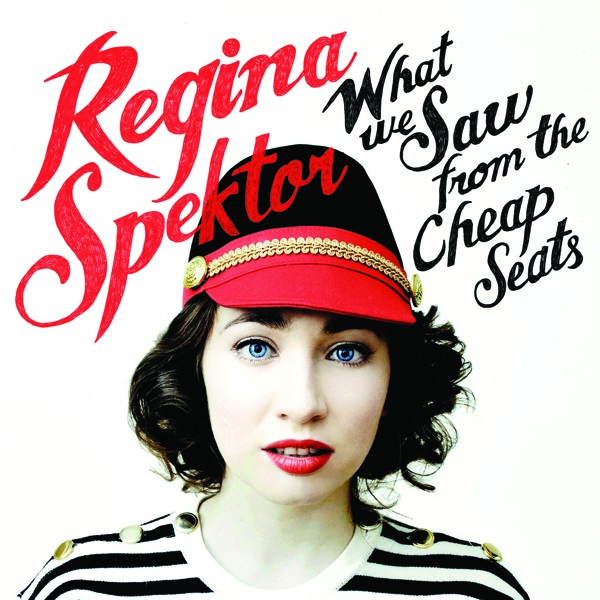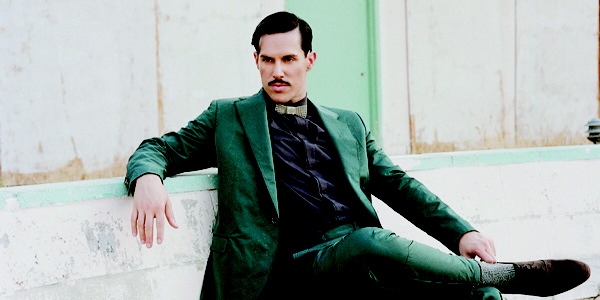Fans of the Russian-born American folk pop musician have gotten caught up in the New Yorker’s own narrative, the remarkable events and characters of which require no embellishment. After initially stalling their planned migration from Communist Russia due to concerns about the effects on a young Regina’s musical development, the Spektor family finally sought the assistance of the Hebrew Immigrant Aid Society in 1989 during Perestroika, a period of reform and openness within the regime that allowed Soviet citizens to emigrate. After six months in the strange and surreal environment of a refugee processing centre in Italy, the Spektors finally immigrated to America. Thanks to the close-knit and supportive Jewish community of Riverdale in The Bronx, Regina was able to recommence her musical tutelage, albeit on a loaned piano in the basement of her local synagogue, which she had to bash at to get any noise. She was ten-years-old.
Fast-forward two decades, and the daughter of Bella and Ilya Spektor has released six albums, including this year’s critically and commercially successful What We Saw From The Cheap Seats. Produced by Mike Elizondo (50 Cent, Eminem), the record entered the Billboard charts at #3, and has seen Spektor hailed by no less an authority than Rolling Stone as her generation’s Joni Mitchell. Does she pay any heed to the swell of superlatives in recent years? “I just do my own thing,” she says, “which might sound tired, but it’s absolutely the truth. I understand that my music is going to be critically appraised, and that someone will say my album is the best thing ever, and someone else will say it is the worst thing ever. Then there will be the person who just doesn’t care… All I can control is doing the right thing by my art. If I can get that bit right, the rest will happen.”
The live show, however, is an entirely different matter: Spektor confesses that the larger-scale gigs required by her new fame can occasionally be overwhelming. “When you’re playing songs for anyone, there’s an exchange of energy – so obviously when there’s a lot more people you just feel that there’s a lot more going on,” Spektor says. “When I’m in front of thousands of people there are so many life stories, so many various problems people are experiencing, and all of these different backgrounds and degrees of happiness just come together.
“When you’re on that stage you can’t help but feel all of that, within a particular moment. It just feels – it’s such a huge experience for me. Sometimes it’s just too much…” she trails off. “[But] everybody works hard. If it gets too much after a performance I’ll just put myself in a dark room. I’ll just lock myself in there, and not talk to anyone for a day. It’s always been like this for me. I think it’s probably like this for most people like me: if you’re really open and social and engaged and free with the world, then you have to be a bit careful.”
Australia has been passionately fixated on Spektor since she debuted here in 2007, on the back of her astounding breakthrough LP, Begin To Hope. Despite it being her first visit to the country, she still managed to sell out large theatres, with locals holding aloft ‘Queen Reggie’ signs as Spektor walked onto stages with a walking stick, arriving in Australia days after a car accident back home in New York.
Local fans will be treated to a rested and rejuvenated Spektor this time around; she’ll be enjoying her “first decent break in months” before she leaves for Australia. “Not that I’m complaining – that’s just how things are. We get to see all these places around the world, and there are spots I’ve discovered purely because we accidentally stopped there for a day. It means that there’s a lot of time to reflect, and think about everything we get to see. I mean, so much of it is up to chance, and we still seem to be able to experience the best of all these different worlds. It’s kind of a bit like a swinging clock; sometimes the pendulum swings and I get to be on the road surrounded by people, and sometimes it swings and I’m somewhere else,” she says. “Either way, it’s pretty awesome.”
BY BENJAMIN COOPER

